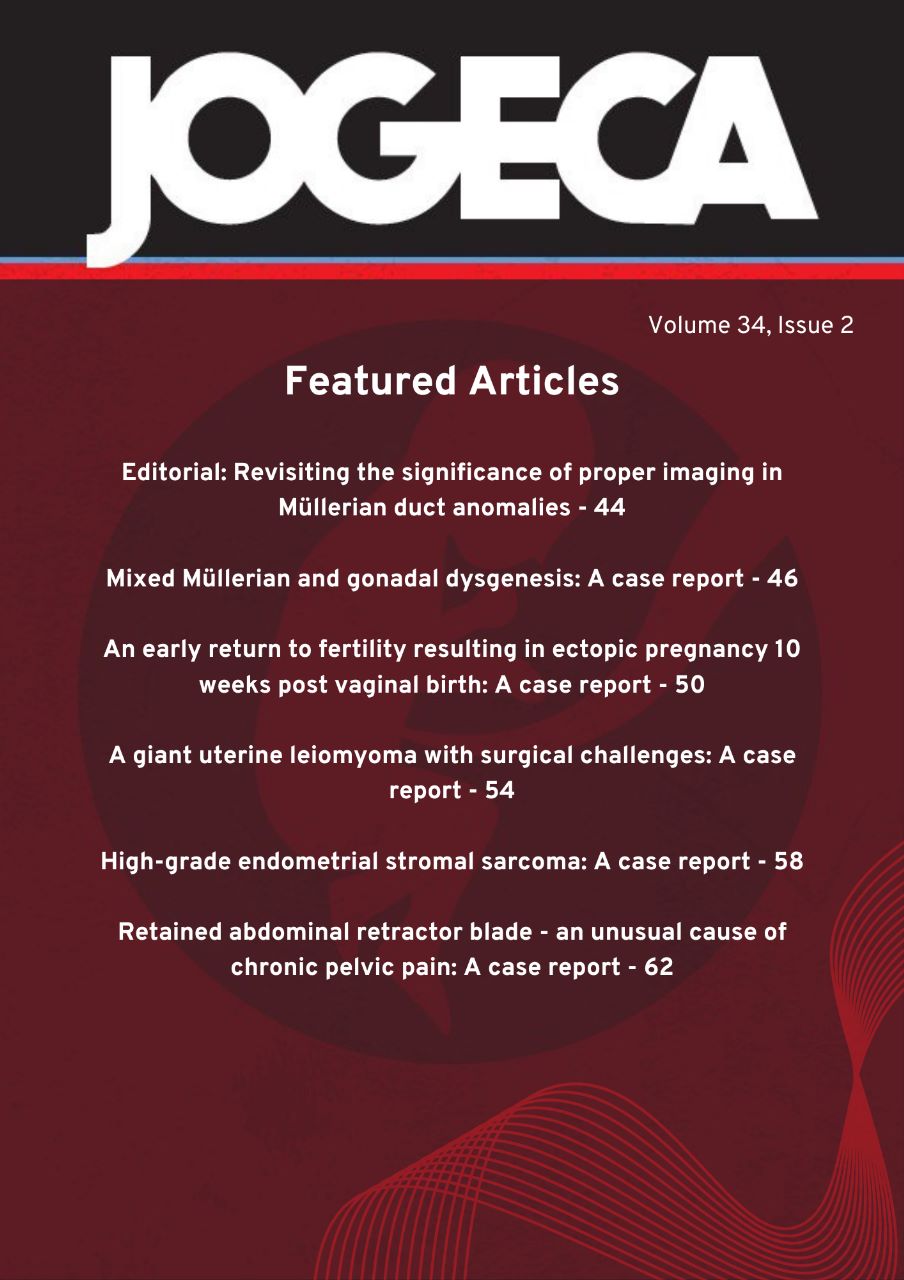CAPACITY BUILDING OF KENYAN HEALTH WORKERS IN PPH PREVENTION AND MANAGEMENT: SAVING MORE PARTURIENT LIVES
DOI:
https://doi.org/10.59692/jogeca.v32i2.238Abstract
Introduction: Despite being largely preventable, postpartum hemorrhage (PPH) is the modal cause of maternal mortality globally and in Kenya.
Methodology: During the 44th Annual Scientific Congress of the Kenya Obstetrical and Gynecological Society, a 2-day PPH workshop was held in Msambweni Sub-District Hospital in Kwale County to identify addressable gaps and to build local capacity. The participants sat a uniform pre- and post- test and evaluated the course.
Results: The modal cadres present were clinical officer interns (8) and midwives (7). Out of the 28 participant responses analyzed, the pretest revealed low average level of knowledge (43.8%), with devascularization (31.8%) and resuscitation (39.7%) showing the lowest levels. The post-test revealed substantial improvement in overall average knowledge that was attributable to the training (75.2%, p=0.001). Three quarters of the participants rated the training as excellent, while a fifth rated the training as good.
Discussion: PPH is known to be the most significant cause of maternal mortality. However, knowledge of its prevention, diagnosis and management were poor. The training resulted in significant improvement in knowledge, while the use of high-fidelity simulation drills enhanced emergency preparedness.
Conclusion: Overall, there is a significant role for capacity building through in-service trainings. There is therefore a need to scale-up such trainings in order to further reduce contribution of PPH to maternal mortality in Kenya.
Downloads
Published
How to Cite
Issue
Section
Categories
License
Copyright (c) 2020 The Authors.

This work is licensed under a Creative Commons Attribution 4.0 International License.




